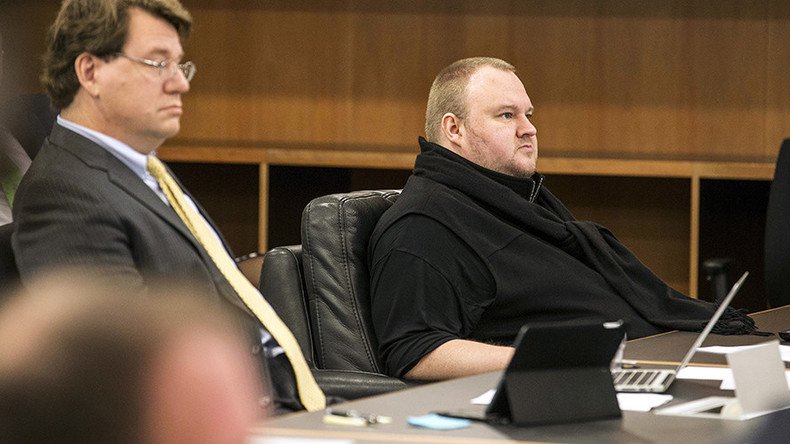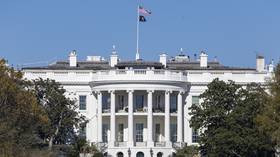NZ spy agency op against Kim Dotcom’s associates ‘unlawful’ – High Court docs

Newly-released New Zealand High Court documents reveal that the Kiwi agency’s spying on foreigners in the FBI-led Megaupload investigation was found to be unlawful. Kim Dotcom team’s lawyers argue the illegal spying makes the entire extradition case void.
Lawyers for the Megaupload executives, including Megaupload founder Dotcom, on Friday called for extradition proceeding against their clients to be dismissed.
A newly released court filing stated the Government Communications Security Bureau’s (GCSB) interception of Megaupload executives Mathias Ortmann and Finn Batato was “unlawful.”
The finding is significant as it was previously assumed that Batato and Ortmann, unlike Kim Dotcom and Bram van der Kolk, were valid surveillance targets because they were not New Zealand citizens or residents.
Kim #Dotcom vows to fight 'unlawful surveillance' after court admits he was watched longer https://t.co/lJcEilGu13pic.twitter.com/JstpKiX3Xf
— RT (@RT_com) July 22, 2017
"The circumstances of the interceptions of Messrs Ortmann and Batato's communications are Top Secret and it has not proved possible to plead to the allegations the plaintiffs have made without revealing information which would jeopardise the national security of New Zealand," the GCSB stated, according to the court files.
“As a result, the GCSB is deemed to have admitted the allegations in the statement of claim which relate to the manner in which the interceptions were effected," the court document concludes.
All four men are currently appealing their extradition order to the United States.
A statement from law firm Keegan Alexander, which has been representing MegaUpload executives since 2014, said the admissions mean “the whole of the GSCB surveillance operation involving the extradition defendants was unlawful.”
“Not just because it involved permanent residents (as previously stated by government) but more fundamentally because the whole surveillance operation fell outside the authorisation of the GCSB legislation as it was relevant at the time.”
The firm also questioned if parliament was aware of the extent of the agency’s unlawful behaviour before legislation was amended to broaden the GSCB powers to spy on New Zealanders.
Kim Dotcom’s lawyer, Ian Rothken, told the Inquirer that Dotcom’s extradition case should now be dismissed in the interests of justice.
"The government's illegal conduct has reached such an extreme level that we believe that no court should entertain an extradition proceeding so tainted with state sponsored abuse and violations of basic human rights."
Attorney for Ortmann and van der Kolk, Grant Illingworth, told Ars Technica that Ortmann’s successful challenge of the spying operation calls the legality of the whole surveillance operation into question.
"We now believe on the basis of this judgement that the GCSB were acting outside their powers even in relation to a foreign person—because if they were entitled to spy on [Ortmann], GCSB would have denied the allegations," he said.
"Which means the illegal spying must have been more than the permanent residence issue—in other words the whole operation was outside the scope of the powers of the GCSB."
A spokeswoman for the GCSB told the New Zealand Herald"it was not possible for GCSB to plead to the allegations ...without revealing information which would jeopardise the national security of New Zealand."
Kim Dotcom tweeted following the release of the judgment suggesting that the next step was to establish the NSA’s role in the illegal spying.
Next step:
— Kim Dotcom (@KimDotcom) August 25, 2017
Let's find out exactly what the NSA involvement was in all that illegal spying and deep state abuse of power against my family 👊🏻
In July 2017, another court ruling found that the GCSB had been spying on Dotcom for two months longer than had previously been known.
The agency claimed, however, it had no idea it was still spying on Kim Dotcom for months after officially ending its operation, according to court documents.
READ MORE: GCSB spy technology 'went rogue' & kept surveilling Kim Dotcom – court documents














